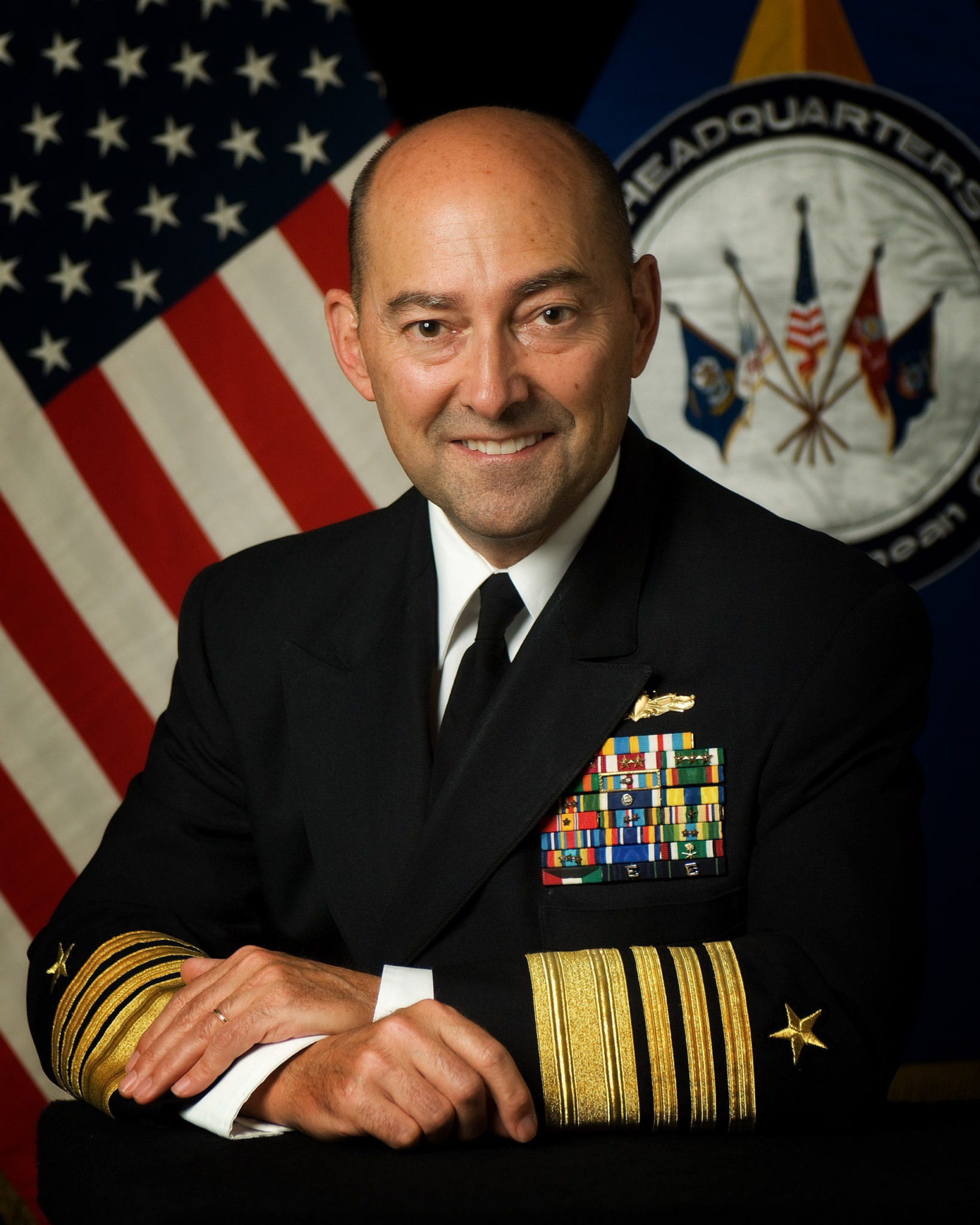
Wikimedia Commons
Retired Navy Admiral James Stavridis answered a central question at a sold-out talk on Tuesday: Is the rise of China and their challenge to American power an inevitable cause for war?
The admiral answered the question in the negative in Horchow Hall yesterday, at a speaking event titled “Challenges to American Military Power.” Yale students, faculty and current as well as past members of the armed forces filed into the building at 55 Hillhouse Ave. to hear Stavridis deliver his talk. Stavridis served as the supreme allied commander of NATO and as the dean of the Tufts Fletcher School of Law and Diplomacy. Professor of military and naval history John Lewis Gaddis moderated the talk, which tackled a range of topics — from geopolitics, grand strategy and leadership to in-depth discussion on Stavridis’ new book, “Sailing True North.” But the central topic for Tuesday was the growing geopolitical tensions between China and the United States.
Gaddis opened the conversation with Stavridis by comparing today’s geopolitics to the concept of geology. Like geological systems, structural shifts in foreign affairs happen slowly and often go unnoticed. History is not cyclical, Gaddis added, stating that “the rise of China” has seen a “resurgence of bipolarity in the way we saw it in the Cold War.” But he added that with China, the difference is that, for the first time in modern history, a rival power could challenge the United States on “land and sea.”
China’s amassing of power, according to Stavridis, is undeniable.
“Your image of geology is really apt, the mountains shift,” said Stavridis in relating geology to foreign affairs. “These are tectonic plates shifting under the sea, and we have to remember that with tectonic plates come a massive tsunami.”
But he emphasized that contrary to common public rhetoric, war with China is not inevitable. Stavridis said he believes the United States is bound to enter conflict with China over other issues. These include commerce, tariffs, intellectual property and most importantly, China’s quest for dominance in the South China Sea.
Stavridis then shifted the conversation toward China’s strong-armed government, stating that these values can conflict with U.S. principles and, as such, are cause for caution in diplomacy. He included Russia in China’s ideological camp and predicted the former’s continued meddling in the U.S.’s upcoming presidential elections.
When asked about how the next conflict would occur, he answered that a crucial theatre of war could be in cyberspace even if this realm does not yet have the same devastating impact on society as nuclear weapons.
Stavridis said that the United States still needs to maintain a maritime presence beyond the South China Sea. From a strategic standpoint, the US has two key advantages: two friendly neighbors to the north and south to protect their interests as well as two oceans to stave off any hostile powers. According to Stavridis, should the U.S. Navy lose control over the oceans, “it would be as if we bordered another country” — one which might be unfriendly toward the U.S.
Yet, Stavridis said he still believes in the need for maintaining NATO’s 29-nation alliance taking up 52 percent of the world’s gross domestic product. He pointed to NATO’s ability to unite the strength of member nations, including the “Europeans who have stood with us” in the aftermath of tragedies like the Sept. 11 attacks. The point of NATO, he said, is not limited to economics but rather “that there are 29 nations that share the same values.”
Professor Gaddis then asked the former supreme commander of NATO about the conflicting idiosyncrasies of leadership.
“Leadership is a big door,” he said. “That big door for leadership swings for good or for ill. Big doors swing on small hinges. The small hinges of character are what leadership hangs on.”
Joe Boland ’23 said he “wish[ed] [Stavridis] could’ve addressed NATO’s relationship with the Shanghai cooperation organization, which he only touched on briefly.”
Another attendee, Matteo Carrabba ’23, said he found the admiral’s remarks valuable.
“The general seems like a pretty brilliant guy. He’s well read,” Carraba said. He added that Stavridis’ “initial words about character are pretty powerful.”
Yale’s Jackson Institute of Global Affairs hosted the talk.
Talat Aman | talat.aman@yale.edu
Louie Lu | louie.lu@yale.edu







